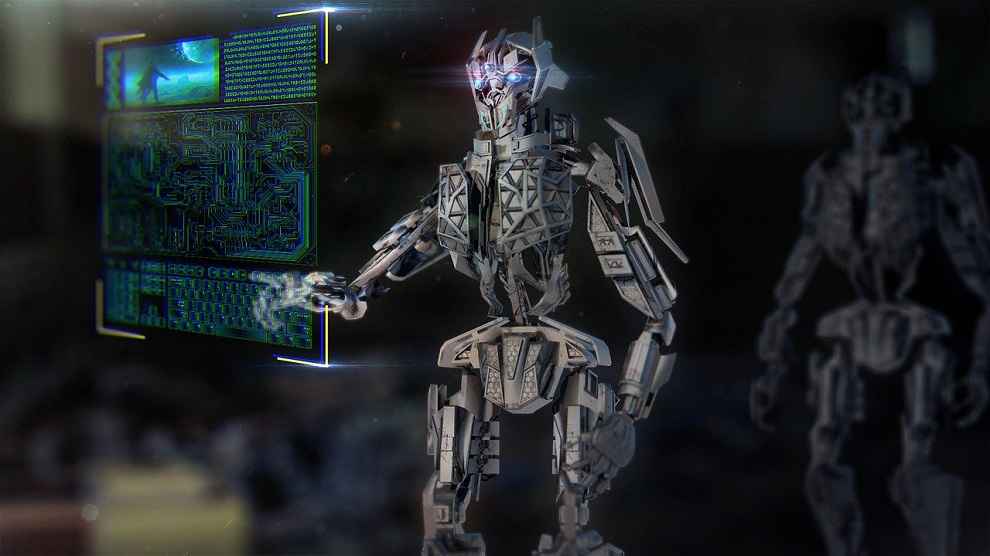Could your next lawyer be a robot?

So, what exactly is a robot lawyer?
We take a deeper look at how robotics and law are coming together
Artificial intelligence (AI) software systems and computer programmes that can update and analyse themselves are becoming increasingly popular
What is a Robot Lawyer?
A robot lawyer or robo-lawyer refers to a legal AI application that performs tasks that are typically done by paralegals or young associates at law firms. Some commentators say that legal AI is, technically speaking, neither a lawyer nor a robot and should not be referred to as such. However, artificial intelligence (AI) software systems and computer programmes that can update and analyse themselves are becoming increasingly popular. They are increasingly being used by the legal community.
Why do we need a Robot Lawyer?
You’d think that human attorneys would be concerned about AI invading their territory. However, some are thrilled because the programs or algorithms can swiftly comb through and sort massive amounts of case information. Artificial Intelligence (AI) also aids human lawyers in writing legal letters. These systems may help enhance productivity, reduce backlogs, ensure accuracy, and aid attorneys in improving the versatility of the services they offer. It may also have an indelible impact on document assembling, time monitoring and billing, job management, contract analysis, legal research, and data analytics in litigation. This help can prove to be crucial, particularly in countries with impossibly vast backlogs.
Professor Richard Susskind, who leads the Lord Chief Justice of England’s advisory committee, highlights that in the country of Brazil, a court has a backlog of more than 100 million court cases. Another expert group, Felix Steffek and Ian Dodd highlighted how both sides may have obtained better or worse results under other conditions. More processing power has aided artificial intelligence in the legal community. Will this early level of AI development be restricted to merely descriptive analysis, or will it be capable of assessing rules and events? That’s what remains to be seen.
Artificial Intelligence “robots” can be used as legal aid in many areas. Some of these include-
1) Organisational Lawyers
Many organisations use robots to help them operate their businesses. Some organisations also have instruments that assess the compliance of their operations and policies with international legislation. They can do tasks traditionally performed by attorneys, such as client interviews and contract preparation.
2) Legal Consultant
They assist consumers in locating the appropriate answers to their legal queries and difficulties. Robot legal advisers are now lowering the cost of legal services by making it simpler for clients to obtain legal advice before meeting with a human lawyer.
3) Corporate Lawyer
Robot attorneys carry out corporate legal responsibilities such as conducting research, offering legal opinions, and informing corporations about fundamental compliance. However, programmers have created an AI lawyer that can help a corporation make a legally enforceable agreement with another company or entity.
4) Real Estate Lawyer
Real estate lawyers are experts in the laws that govern property transactions and negotiations. However, lawyers who manage real estate properties are extremely busy. There are several tools and software on the market that can assist real estate owners in keeping track of their interests and commitments.
Now, with the types of robo lawyers out of the way, let’s look at examples of three lawyer bots in use today:
DoNotPay, a legal service chatbot created by Joshua Browder, bills itself as the world’s first robot lawyer. The chatbot was originally designed to challenge parking charges, but it has now extended to incorporate additional services. The author claims an overall success rate of 80 percent, although this decreases to 65 percent for parking tickets.
Chrissie Lightfoot, entrepreneur and legal futurist based in Yorkshire created the Robot Lawyer LISA. It is an AI-powered contracts tool that saves startups, real estate companies, and consumers time, effort, and money. LISA levels the playing ground by allowing everyone to construct a customised NDA that will protect them. A property package also includes three more contract tools for establishing business leases, residential leases, and lodger agreements.
ROSS, Arruda, Dall’Oglio, and Ovbiagele co-founded a legal research engine that employs artificial intelligence to automate legal procedures, making them more efficient and cost-effective. ROSS is based on IBM’s Watson cognitive computer. Lawyers may pose research questions to them, and they may answer by reading the law, obtaining evidence, and making inferences. Because AI attorneys, like ROSS, are not paid, legal companies may be able to charge reduced costs.
Robot lawyers or legal aids in the future are very much inevitable. Much like email transformed the way we do business every day, AI will become ubiquitous — an invaluable assistant to almost every lawyer. A major concern is whether AI will genuinely replace attorneys, as appears to be the assumption. And, if so, are there any ethical or moral quandaries that should be explored about AI and the legal industry? In our opinion, the issue is, will people who did not adapt and welcome change be left behind in some way?
It is true that attorneys are burdened and need to be liberated from the mundane duty of data collection to focus on the more valuable work of assessing outcomes, thinking, and advising their clients. These are professions that will almost always necessitate the human touch. AI may simply be a tool to assist attorneys in doing all of this more efficiently, quickly, and affordably. While algorithms are great at processing data, they fall short when it comes to emotional intelligence and human judgement. Complex areas of statutory law, such as tax, will gain from technology’s greater processing abilities, but people will almost always be better at negotiating agreements, settling disputes, and making ethical decisions.
Algorithms will undoubtedly affect legal practice in the future, even if they will not completely replace attorneys. Dispute resolution is likewise expected to be transformed by technology. Virtual courts may replace the traditional courtroom where all parties gather. From the start, the lawyer may shift from fighting the matter to designing smart contracts.
Many individuals avoid going to see attorneys not because they don’t need them, but because they are expensive. The good ones, that is. And if you were looking for money, you might not have much to take home after visiting a lawyer and paying their legal costs.
Some may say, the elite are catered to by the human legal profession. Those who can afford to pay exorbitant prices. Large swaths of the population, particularly the most vulnerable, are left out in the cold. Where human attorneys have failed, robot lawyers could succeed. They can provide legal assistance to impoverished and disadvantaged areas in great need. The legal profession and the practice of law are evolving. There may be numerous issues that the profession will confront in the next few years, but no one can anticipate what the legal profession will look like in the future. One thing is certain: the number of robo-lawyers is certainly growing.
This article was first featured in the January 2022 issue of the Digit magazine. To subscribe to the magazine, head to this link. To get the digital subscription, head over to Geek.Digit.in

Harshita Arya
A student journalist who is into facts. She is always keen to learn more about places of origin and the future. View Full Profile






